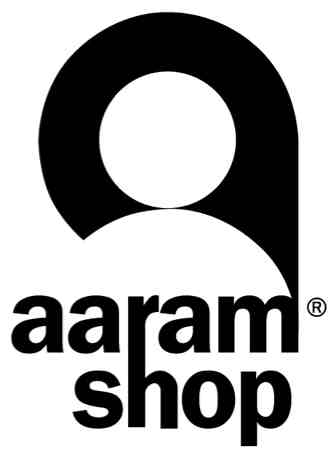Indian startup aims to help grocery stores go online

E-commerce is certainly very popular in India, but it shouldn't be restricted to items commonly purchased over the Internet such as electronics, books, perfumes, clothes, and bags. One Indian startup is looking at a different market segment.

AaramShop combines the sale of FMCG (fast-moving consumer goods) and CPG (consumer packaged goods) brands to folks who are too busy most of time to physically go and buy their groceries. Simply put, it enables consumers to do their grocery shopping by tying up with neighborhood retailers and transforming the experience of shopping for groceries online.
AaramShop aims to help out individual retailers with physical presence to establish an online store, which allows them to connect better with their Internet-savvy consumers.
Based out of New Delhi, AaramShop comprises a team of techies and marketers and has been operational for over a couple of years now. Vijay Singh, CEO and managing director of Aaramshop, shared more details with me about the startup.
The idea behind Aaramshop
Grocery is what could be considered the "final frontier" and represents the largest challenge. It is one of the largest and most consistent spends undertaken by every household in India and yet it has largely stayed out of the online ambit, Vijay explained.
The consumer is increasingly becoming "digital" and has at least one connected device within arms reach 24 by 7, and brands are trying hard to engage with that consumer, he noted.
"We believe that all the engagement was missing out on closing the loop and that is what we have set out to do," he said. "We want that when a consumer engages with a brand, she should have the option of going the next step of 'getting' the brand to her home. This is possible for us by integrating the Web with the last mile--online to offline."
"Therefore, the hybrid model that we follow allows shoppers to shop with us online, and then choose a store in their neighborhood--or AaramShop, as we like to call them. The order is fulfilled by the consumers' preferred store which will deliver the products ordered to the consumers' doorstep."
This unique model ensures consumers can get their preferred brands from the Web to the doorstep, in a matter of hours, and without the need to recreate supply chains. It also means "short on time, high on stress" urban consumers can do their grocery shopping with the added ease and convenience.
How do the tie-ups with grocery stores work?
Neighborhood-based grocery stores are an integral part of the AaramShop ecosystem, Vijay said, adding that AaramShop would not be able to operate without their support and involvement.
The startup supports a combination of both independent and chain stores. When a store partners AaramShop, it enjoys a number of advantages--the biggest of which is the physical store would get a 24 by 7 customized Web store, enabling their consumers to access it and place their orders. This helps the retailer grow his sales volume.
"We also have a suite of services like AaramOffers which enable a store to create its offers and promotions and market them to the consumers in the catchment area. These services make the retailers competitive and relevant," Vijay said.
AaramShop is offered as a free platform for retailers, but they come onboard only by invitation, he noted.
"We receive a lot of consumer recommendations of their preferred stores. We follow up with post verification and on-boarding process. We also have a team on the ground that proactively identifies quality retailers and brings them on the platform," he said.
A number of players are trying to use traditional e-commerce models for the grocery business. Vijay believes the thin margins, absence of deep discounts, and the complexity of centralized logistics make the hybrid model and AaramShop more viable options.
Unlike the business of books, where last-mile availability is a challenge, FMCG category is the best distributed category in the world, he said. The biggest issue that needs to be addressed is the connection between the last-mile store and the Web, he added.
I asked Vijay why the site doesn't include private labels, and he replied that this segment isn't part of the AramShop's business.
"We are happy to list brands on the site. In fact, we allow brands to have a fairly rich experience which goes beyond listing via the Brand Engagement Center. On the main site, we do not list any commodities as we believe the quality and quantity of such listings is a problem to ensure for a platform like AaramShop.
"However, within a retailer's independent listing, we allow the retailer to list commodities. The quality and quantity guarantee on such listings is solely that of the retailer," he explained.
Challenges faced in retail collaboration
According to Viyaj, most retailers are at the initial stages of the digital revolution but things are rapidly changing. "There is a generation change that is happening at the retailer-end where the educated, younger generation is taking over the business and they are keen to adopt the best practices.
"AaramShop gives an ideal mix that helps them generate new businesses while maintaining their business independence. Our services for retailers include tools like AaramOffers which enable retailers to create their own offers and promotions or just upload their inventories, and further help them market their offering to the consumers in the catchment area," he said.
Consumers also receive discounts and special offers. Vijay said grocery buying is about local buying and his startup aims to help consumers understand the local offers.
He noted that there is little use for a consumer to know the offer price availabile in a different city. However, it is very important to know the best price for a specific product or the entire shopping list in the immediate vicinity of the consumer.
AaramShop allows a consumer to search for product offers within specific pincode areas and, thus, buy from the most economical option, he said.
Elaborating on the startup's revenue model, Vijay said: "We built a differentiated revenue model to ensure the model is scable and offers a win-win solution for every member in the ecosystem. While we have a free-to-use service for retailers and brands and, of course, consumers, we also have created a number of opt-in premium services that can be used by the brands and retailers.
"The brands that we work with are some of the biggest marketers in the world, and are constantly on the look out for better and more effective ways to engage with consumers," he said.
He added that AaramShop offers these businesses "Everywhere Commerce" opportunities, wherein every consumer's touch-point can be converted into an action point. This opportunity is used by organizations to extend "shareability" of their brands to "shopability".
"Analytics is an important cornerstone of our business and critical for brands to understand who is shopping for their products, and how they're doing so, and then reach out to the consumers with increased relevance," he said.
Funding, future plans
Currently, AramShop is self-funded. It is looking to expand within India. Vijay expects to cross 50,000 AaramShops this fiscal year, located across 60 top cities in the country. "We believe our unique business model is ideal for all geographies which have a strong neighborhood-retailing format," he added.
"A lot of our marketing involve working jointly with brands and we take up marketing across all mediums, with digital leading the way. Some of our initiatives like the AaramShop Grocery Festivals are designed to create 'short-bursts' of consumer marketing on-ground in specific cities," he said. "Social media is an important part of our communication strategy. For example, we run AaramShop as a fully functional app within Facebook, enabling consumers to shop without exiting their Facebook profiles."
The startup is also looking at mobile platforms and will undertake "extensive geo-targeted communication" on mobile devices, he said, adding that this will be supported by AramShop mobile apps across all platforms.
According to Vijay, the startup operates on a small team with predominant focus on technology and marketing. The team designed its business structure to be "asset-light", he said.
"Our DNA is all about challenging the norm, innovation, and co-creation. Therefore, the culture in the office reflects that. It is a fun place, where there is a very healthy respect even for innovation attempts that fail."